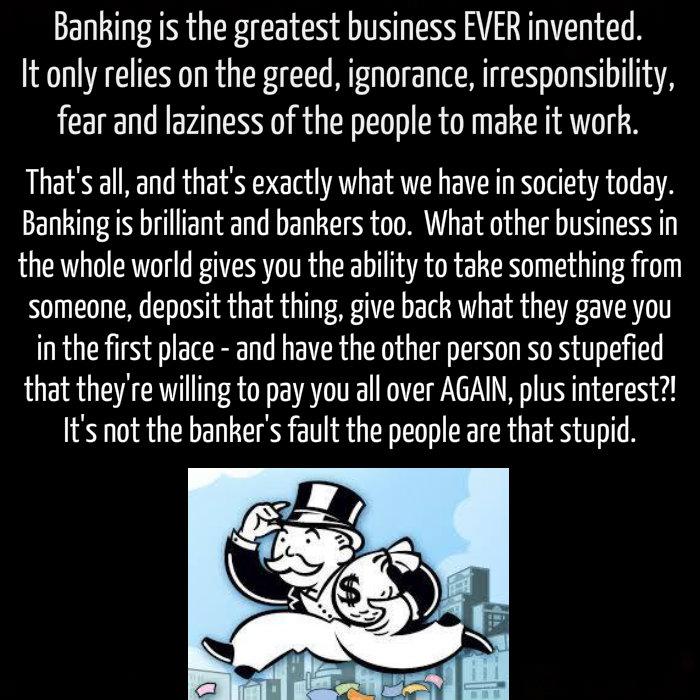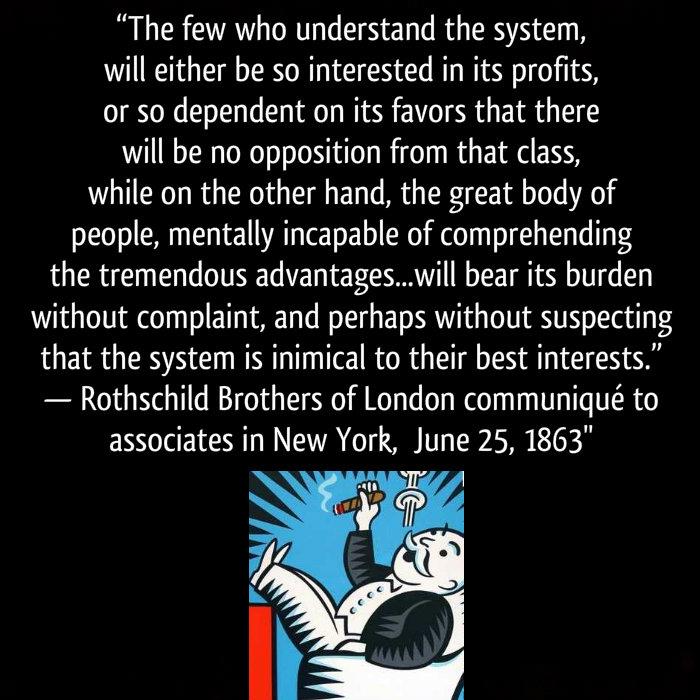https://odysee.com/@NotPorC:3/Banks-don't-make-Loans:9?
3:21 minute video
Right click to open in new tab
May have to unmute, volume is on far left.
Has been removed from YouTube repeatedly.
Richard Werner, an economist and professor, explains how banks really work.
Banks don’t take deposits. Banks don’t lend money.
— Begin Transcript —
Banks are being thought of as intermediaries, but this not really what’s happening. Banks are creators of the money supply. I produced the first empirical studies to prove that [banks create money out of thin air].
Banks are thought of as deposit-taking institutions that lend money. The legal reality is banks don’t take deposits and banks don’t lend money. So what is a deposit? A deposit is not actually a deposit. It’s not a bailment. And it’s not held in custody. At law, the word deposit is meaningless. The law courts and various judgements have made it very clear if you give your money to a bank even though it’s called a deposit, this money is simply a loan to the bank. So there is no such thing as deposit. It’s a loan at a bank.
So banks borrow from the public. So that much we’ve established.
What about lending? Surely they’re lending money. Umm. No, they don’t. Banks don’t lend money. Banks again, at law, it’s very clear. They’re in the business of purchasing securities. That’s it. So you say. OK. Don’t confuse me with all that legalese.
I want a loan. Fine, here’s the loan contract. Here’s the offer letter. And you sign. At law, it’s very clear, you have issued a security. Namely a promissory note. And the bank is going to purchase that. That’s what’s happening.
What the bank is doing is very different from what it presents to the public that it’s doing.
How does this fit together? So you say fine, the bank purchases my promissory note, but how do I get my money? This is a loan. I don’t care about the details. I want the money. The bank will say you’ll find it in your account with us. That would be technically correct. If they say, we’ll transfer it to your account, that’s wrong because no money is transferred, at all, from anywhere inside the bank or outside the bank. Why? Because what we call a deposit, is simply the bank’s record of its debt to the public. Now it also owes you money [for the promissory note] and its record of the money it owes you is what you think you’re getting as money [as a loan]. And that’s all it is.
That is how the banks create the money supply. The money supply consists to 97 percent of bank deposits and these are created out of nothing by banks when they lend. Because they invent fictitious customer deposits. Why? They simply restate, slightly incorrectly in accounting terms – what is an accounts payable liability arising from the loan contract having purchased your promissory note – as a customer deposit. But nobody has deposited any money. I wonder how the FCA [Financial Conduct Authority] deals with this because in the financial sector you’re not supposed to mislead your customers.
— End transcript —
Top 12 - watch, read, repeat until fully aware


